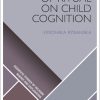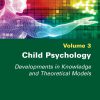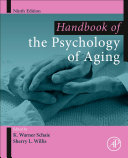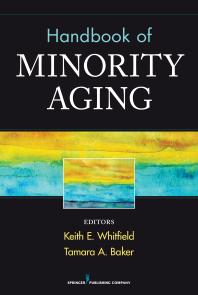Handbook of the Psychology of Aging 9th Edition by Warner Schaie, Sherry Willis 0128160942 9780128160947
$50.00 Original price was: $50.00.$25.00Current price is: $25.00.
Handbook of the Psychology of Aging 9th Edition by Warner Schaie, Sherry Willis – Ebook PDF Instant Download/Delivery: 0128160942, 9780128160947
Full download Handbook of the Psychology of Aging 9th Edition after payment
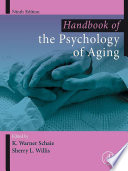
Product details:
ISBN 10: 0128160942
ISBN 13: 9780128160947
Author: K Warner Schaie, Sherry L. Willis
Handbook of the Psychology of Aging, Ninth Edition tackles both the biological and environmental influences on behavior and the reciprocal interface between changes in the brain and behavior that span the adult lifespan. This information is very important to many features of daily life, from workplace to family, and in public policy matters. It is complex and new questions are continually raised about how behavior changes with age. Providing perspectives on the behavioral science of aging for diverse disciplines, the handbook explains how the role of behavior is organized and how it changes over the course of life.
Along with parallel advances in research methodology, it explicates in great detail, patterns and sub-patterns of behavior over the lifespan, and how it affects biological, health and social interactions.
- Covers preclinical neuropathology
- Examines age and sex differences in the process of aging
- Considers financial decision-making and capacity
- Explores mental health issues related to death and dying
- Discusses technology for older adults
Handbook of the Psychology of Aging 9th Table of contents:
Section I: Concepts, theories, methods
Chapter 1. History of adult cognitive aging research
Abstract
Outline
Introduction
Adult stages of intellectual development
A stage model of adult cognitive development
Assessment of intellectual functions
Intelligence and age
Longitudinal studies
Summary
References
Further reading
Chapter 2. Measurement and models for multi-timescale psychological processes in aging research
Abstract
Outline
Introduction
Modeling review
Multi-timescale processes and research designs
Challenges
Emerging opportunities
Conclusion
References
Section II: Bio-psychosocial factors in aging
Chapter 3. Functional connectivity in aging
Abstract
Outline
General introduction and outline of chapter
Functional connectivity
The default mode network
Functional connectivity in aging
Cognition and functional connectivity
Functional connectivity in neurodegenerative disorders
Functional connectivity as a biomarker
Methodological considerations relevant to aging research
Summary and future directions
Acknowledgments
References
Chapter 4. Memory: behavior and neural basis
Abstract
Outline
What is memory, and what is aging?
Brain aging and memory: a complex and dynamic relationship
Control and association: major influences on age differences in memory
Modifying factors: qualitative and quantitative effects
Interventions: hope for improvement?
Summary and conclusions
References
Chapter 5. Executive functions and neurocognitive aging
Abstract
Outline
Overview
Measuring executive functions
Executive deficit theories of cognitive aging
Do executive functions show the earliest and disproportionate decline?
Do brain regions linked to executive functions show the earliest and disproportionate decline?
Executive functions and prefrontal cortex processes as compensatory and protective
Executive functions, the frontal lobes, and lifelong aging
References
Chapter 6. Pain in older adults
Abstract
Outline
Overview of pain
Pain and aging
Pain management in older adults
Summary
References
Further reading
Chapter 7. Sleep, neurocognition, and aging, including secular trends in older adult sleep
Abstract
Outline
Introduction
Sleep through the life span
Etiologies of sleep disturbances in older adults
Benefits and challenges of treating sleep problems in older adults
Conclusions
References
Chapter 8. The final challenge of aging: Death and dying
Abstract
Outline
Terror management theory
Aging and death-related anxiety
The medical and lifestyle pragmatics of the dying process for older adults
Summary and future directions
References
Section III: Behavioral processes
Chapter 9. Smartphones, robots, and social media: aging with communication technologies
Abstract
Outline
Introduction
Aging with communication technology
Concluding remarks
References
Chapter 10. Self-perceptions and awareness of aging: past, present, and future
Abstract
Outline
Introduction
A conceptual framework for subjective aging research
Subjective age: strengths and limitations
Self-perceptions and awareness of aging: the past
Self-perceptions and awareness of aging: the present
Self-perceptions and awareness of aging: the future
Conclusion
Acknowledgment
References
Chapter 11. Gender diversity in later life
Abstract
Outline
Introduction
Gender identity
Gender identity throughout the life span
Aging and gender identity
Improving outcomes for gender diverse elders
Conclusion
References
Chapter 12. Financial decision-making and capacity in older adults
Abstract
Outline
Introduction: what is financial capacity? Legal, clinical and ethical perspectives
The financial capacity problem: cognitive aging and disorders of aging
Clinical warning signs of diminished financial capacity
Challenges in modeling financial capacity
Clinical model of financial capacity
Approaches to assessing financial capacity
Empirical studies of financial capacity
Neuroimaging studies of financial capacity
Noncognitive contributions to financial capacity in aging
Noncognitive contributions to financial capacity in aging
Future research directions
References
Chapter 13. The older worker: gender and age discrimination in the workplace
Abstract
Outline
The what, where, and when of discrimination against older workers
Why does discrimination against older workers occur?
At the intersection of age and gender: the case of female older workers
Conclusion and opportunities for future research
References
Chapter 14. Remembering the personal past across adulthood
Abstract
Outline
Cognitive psychology tradition: ecological, everyday memory
Gerontological tradition: reminiscence and life review
Personality psychology tradition: autobiographical reasoning and the life story
Bridging traditions
Conclusion
References
Section IV: Complex processes
Chapter 15. Psychological assessment of neurocognitive disorders
Abstract
Outline
Introduction
Conclusion
References
Further reading
Chapter 16. Family care exchanges across the life span
Abstract
Outline
The life-span model of family care exchanges
Common risk and protective factors for family care exchanges
Future directions and conclusions
References
Chapter 17. Stress, coping, and aging
Abstract
Outline
Stress
Coping
Theoretical models of stress, coping, and aging
Summary
References
Further reading
Chapter 18. Resilience in midlife and aging
Abstract
Outline
Introduction
Concepts and definitions: distinguishing resilience from related concepts
Measurement of resilience
Resilience in midlife
Domain specific resilience in aging
Conclusions and future directions
Acknowledgments
References
Chapter 19. Successful aging: an obscure but obvious construct
Abstract
Outline
Semantics regarding successful aging
The bedrocks of successful aging
Early science
The perspectives collide
Successful aging: a multidimensional concept or a fuzzy one?
Successful aging: a new paradigm
Successful aging: a public health imperative
Interventions promoting successful aging
Future directions
Conclusions
References
Chapter 20. Cognitive functioning and dementia prevalence in baby boomers and adjacent cohorts: Longitudinal and cohort effects
Abstract
Outline
Increase in US aging population (2.22.2021)
Significant contribution of boomers to increases in US aging population
Cohort and longitudinal effects: Comparison of cognition in cohorts in midlife with special focus on the baby boomers
Cohort differences in cognition in old age: Differential findings
Cohort and longitudinal findings from Seattle Longitudinal Study: Age-related change from 50 to 80 years in 2 cohorts in old age (1886–1913; 1914–48)
Cohort differences in terminal cognitive decline: Two cohorts in old age (1886–1913; 1914–48)
Recent changes in prevalence and incidence of dementia
People also search for Handbook of the Psychology of Aging 9th:
handbook of psychological assessment 7th edition
handbook of psychological assessment 6th edition pdf free download
psychology 6
the psychology major’s handbook 5th edition pdf
Tags:
Warner Schaie,Sherry Willis,Handbook,Psychology
You may also like…
History & Research
Medicine - Oncology
Handbook of Therapeutic Biomarkers in Cancer 2nd Edition Sherry X Yang Janet E Dancey
Psychology - Developmental Psychology
Handbook of the Psychology of Aging 9th Edition K. Warner Schaie
Politics & Philosophy - General & Miscellaneous Philosophy
History & Research
Psychology - Developmental Psychology
Psychology of Aging: A Biopsychosocial Perspective 1st Edition Brian P. Yochim
Science Fiction - Other Sci-Fi
Psychology - Psychological Disorders
Fundamentals of Abnormal Psychology 9th Edition by Ronald J. Comer 9781319126698 1319126693

